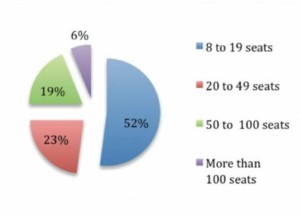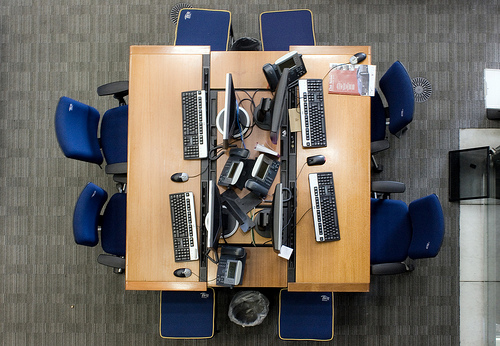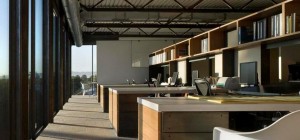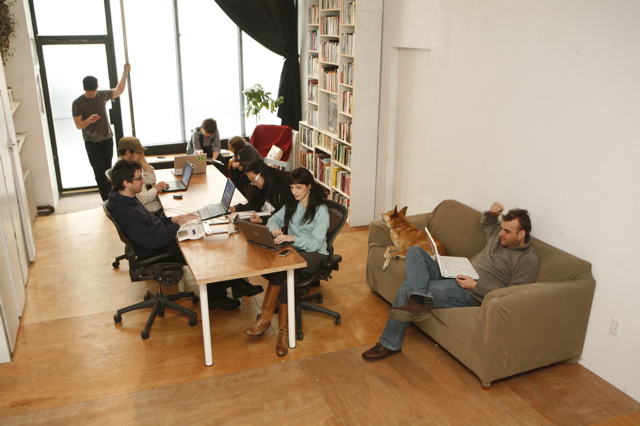Humans are hard-wired to want the biggest and the best, whether you’re talking about burgers or boats. Independents are no different, and we often push for growth without really thinking about what’s best for our business or clients.
As interest in coworking increases all over the world, many space owners will be tempted to move the community out of its loft or small storefront, and into larger warehouses or standalone buildings. While expansion might allow space for more members, it could actually have a negative affect on the level of comfort and collaboration.

The recent Global Coworking Study found that over 50 percent of coworkers prefer to share a workspace with less than 20 people, and at least 21 percent say they work well in a space with fewer than 50 other coworkers. Less than 4 percent of respondents said they’d be willing to work in a workspace with more than 50 users.
There are a few reasons why these findings make sense, both for coworkers and space owners:
A More Intimate Community
When a coworking space maintains a small to moderate size, the members are more likely to get to know each other on a personal level. This facilitates more comfortable conversations and productive collaboration. A massive space with hundreds of members might be lucrative, but it’s likely to lose the intimacy and spontaneity that makes the coworking community so special. Members become ships passing in the night–with no knowledge of the struggles or successes of their fellow independents.
Higher Desk Utilization
It might seem counter-intuitive for a coworking space owner to limit the growth of the community, but as the Global Coworking Study points out, there are some interesting reasons for doing so. In addition to a less connected community, bigger coworking spaces usually see a lower the desk utilization load factor, and fewer full-time members. Members of smaller coworking spaces know that desks are limited, and they’re more likely to sign up for permanent desk space so they’ll be assured a space no matter when they decide to work.
What do you think?
Do you prefer a coworking space to have fewer than 50 members? Why or why not? Share your thoughts in a comment!










